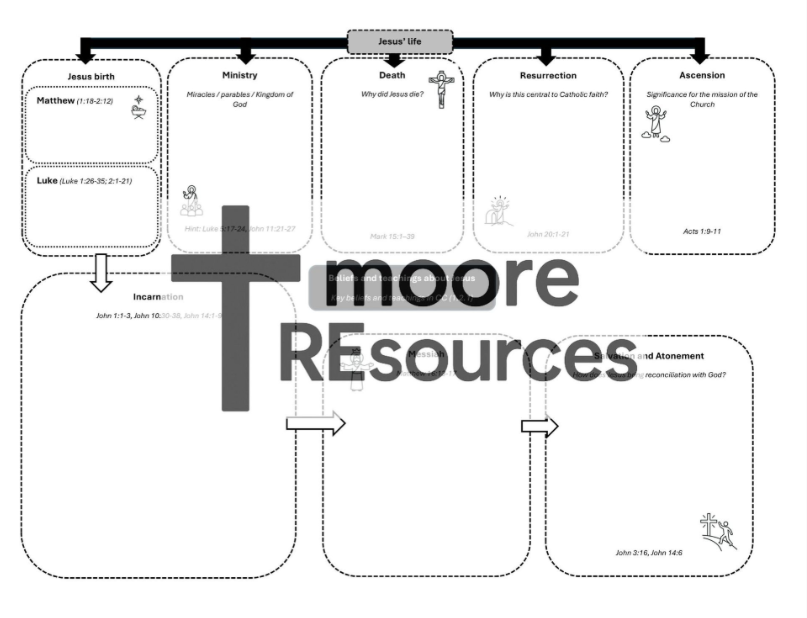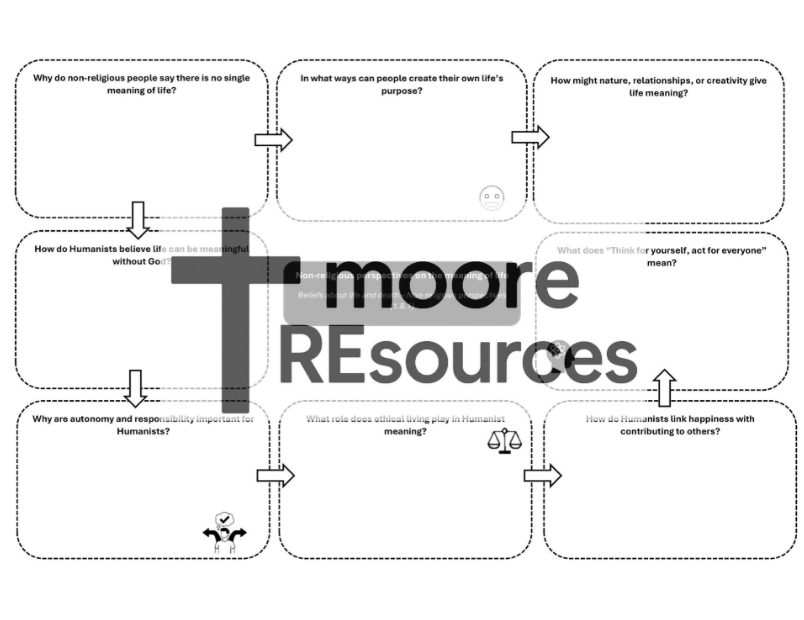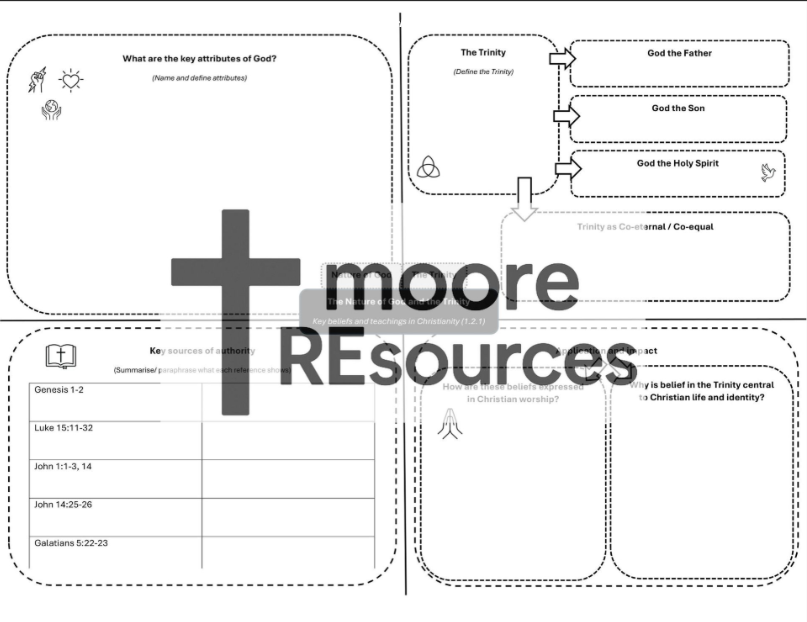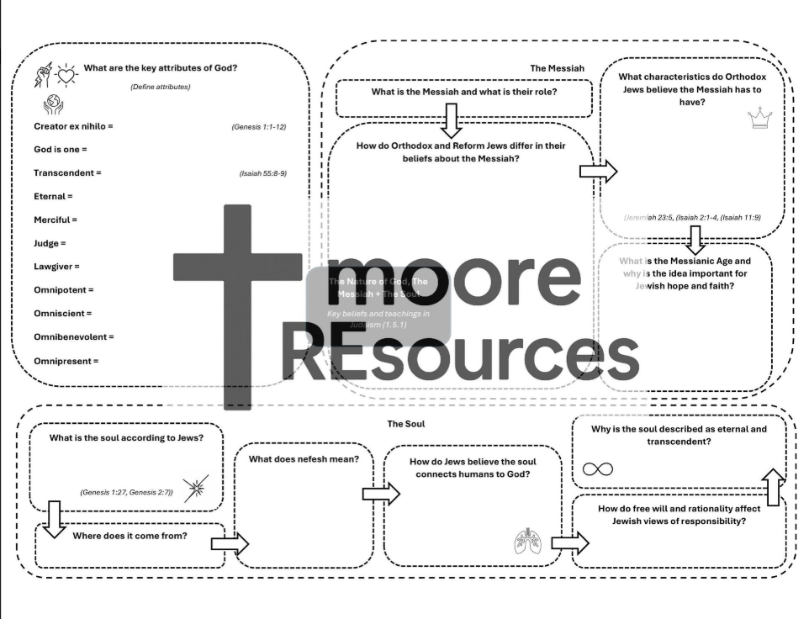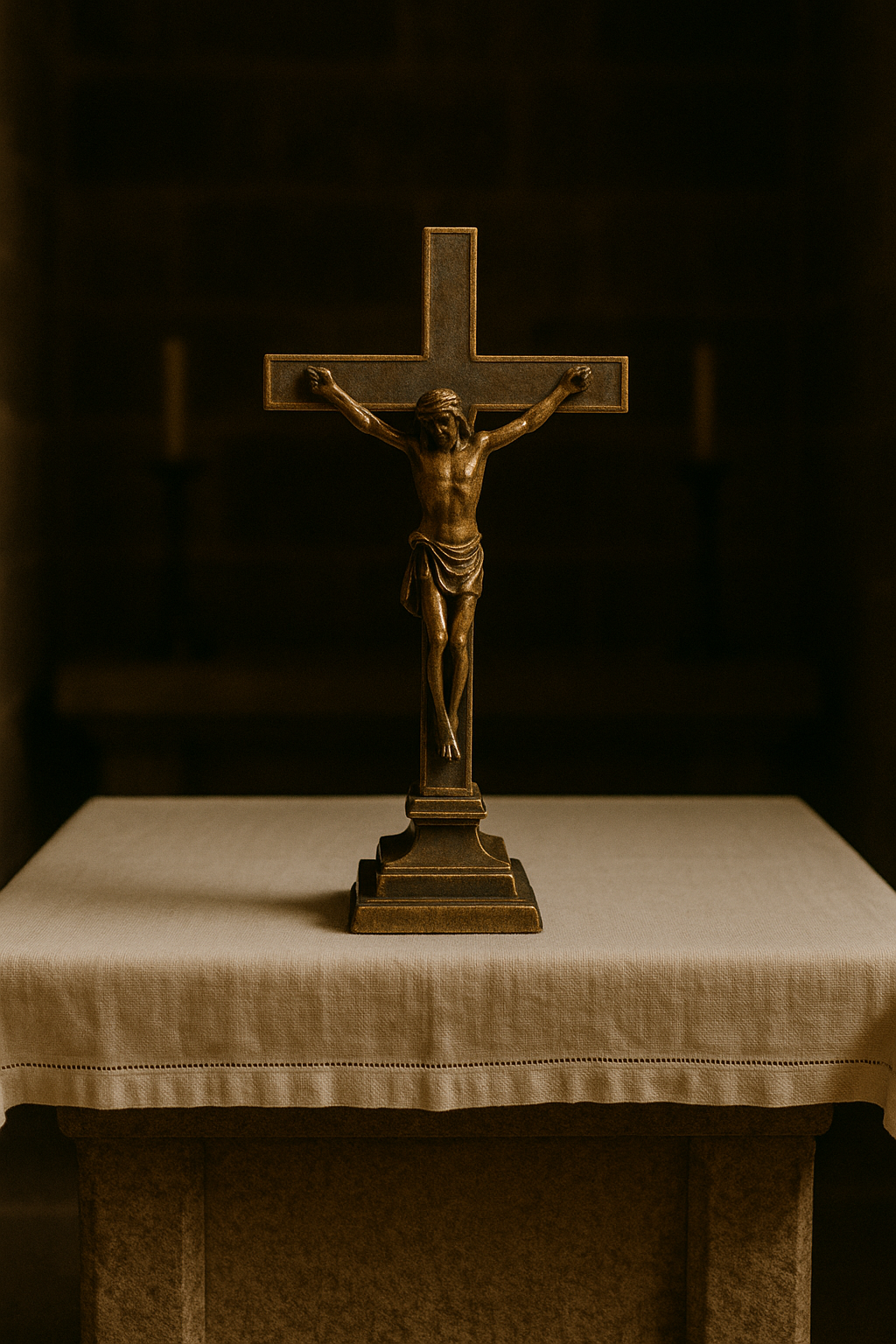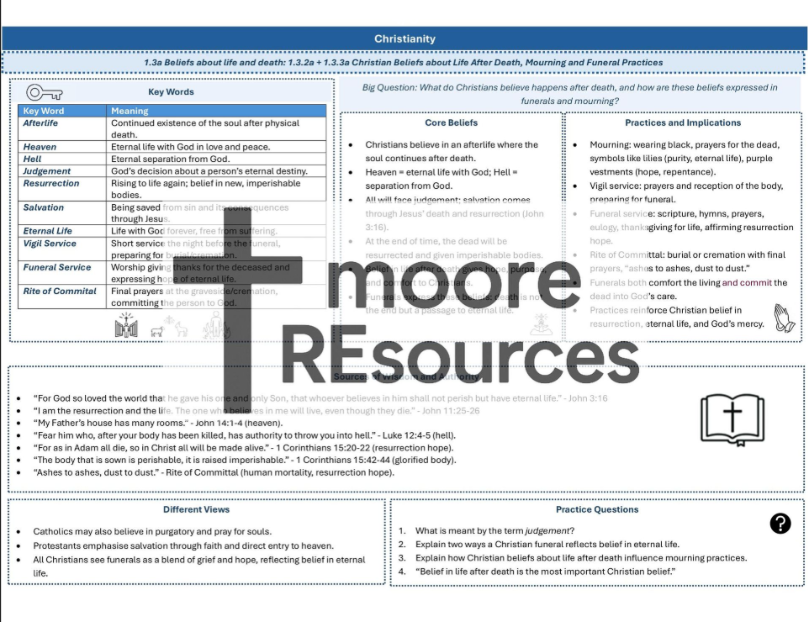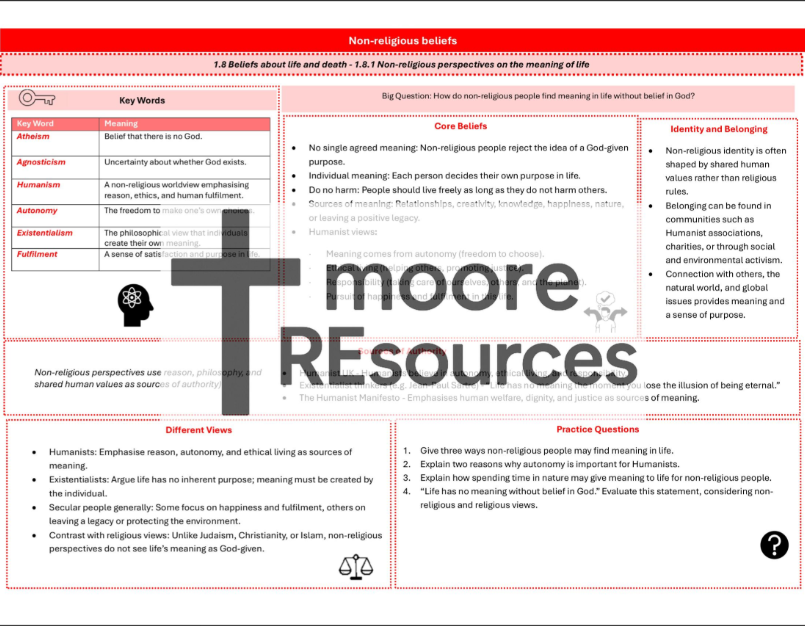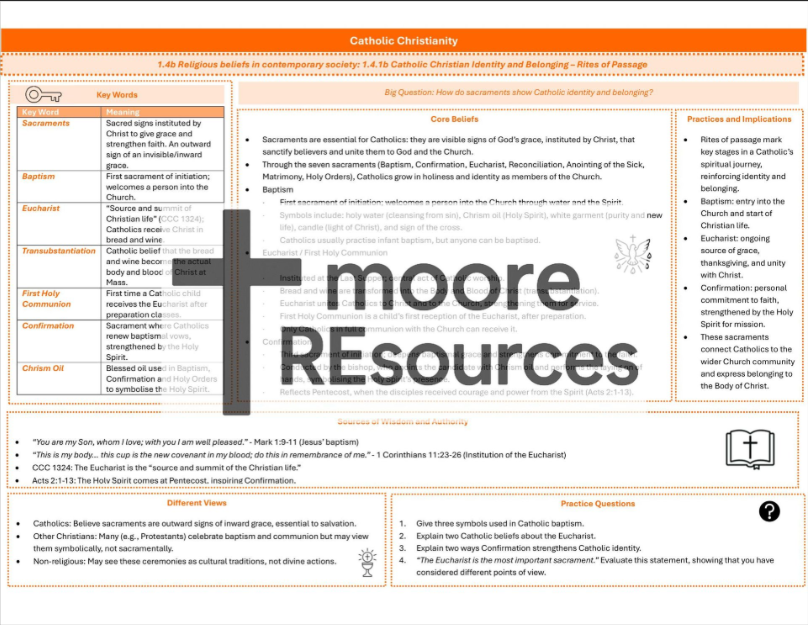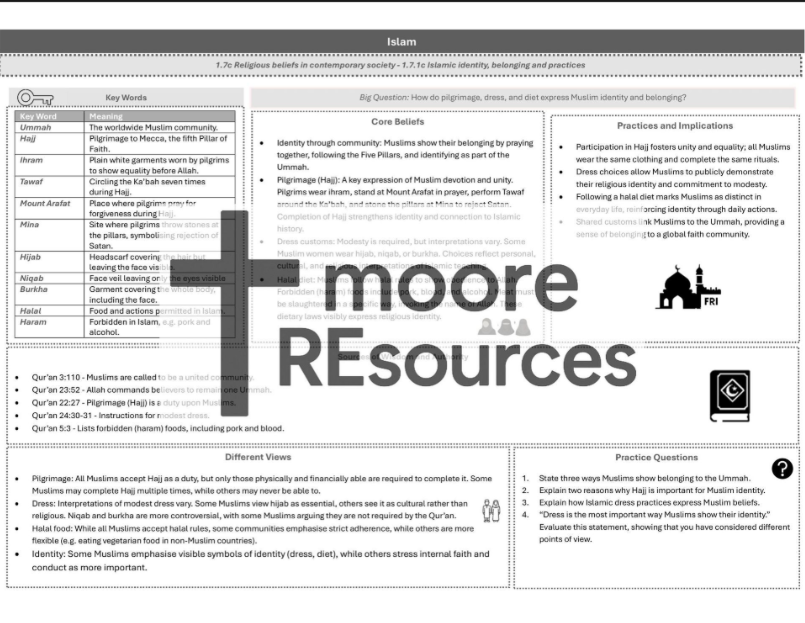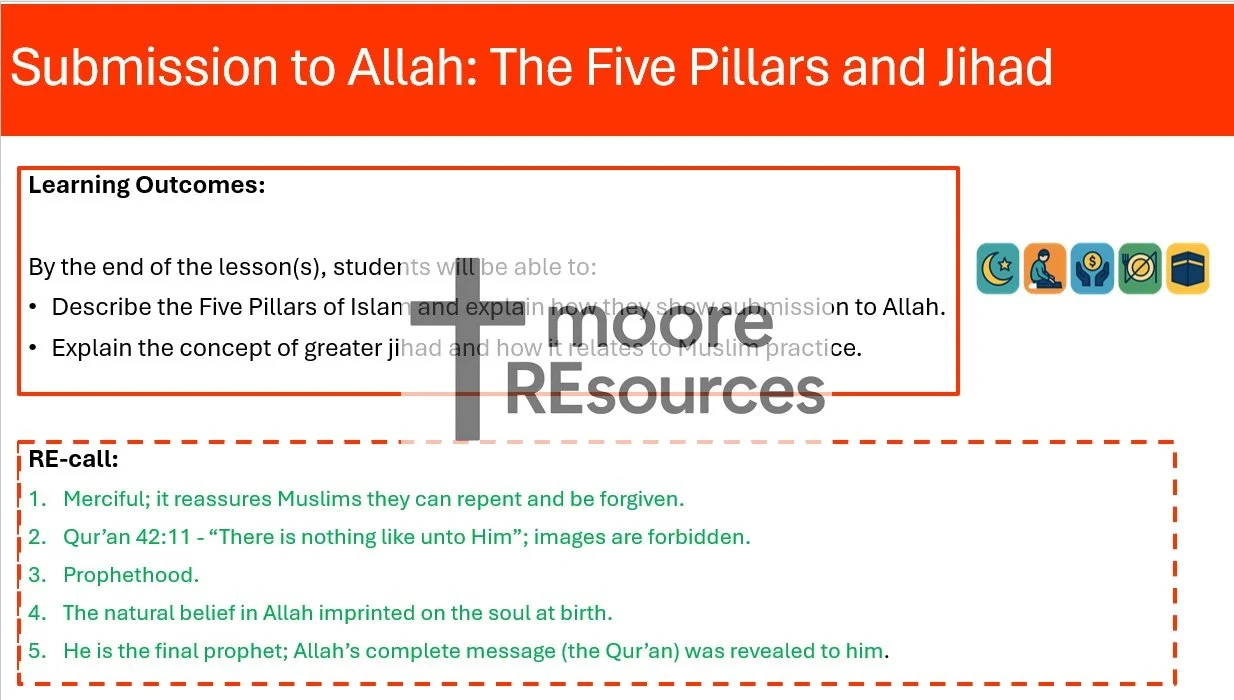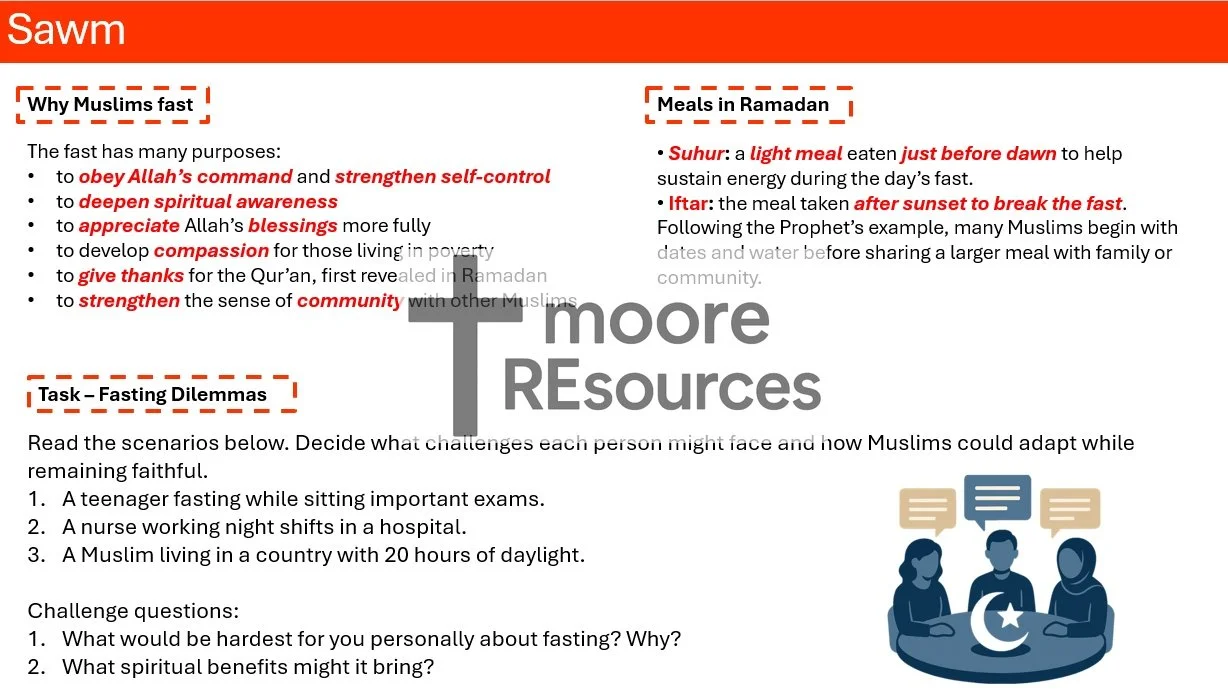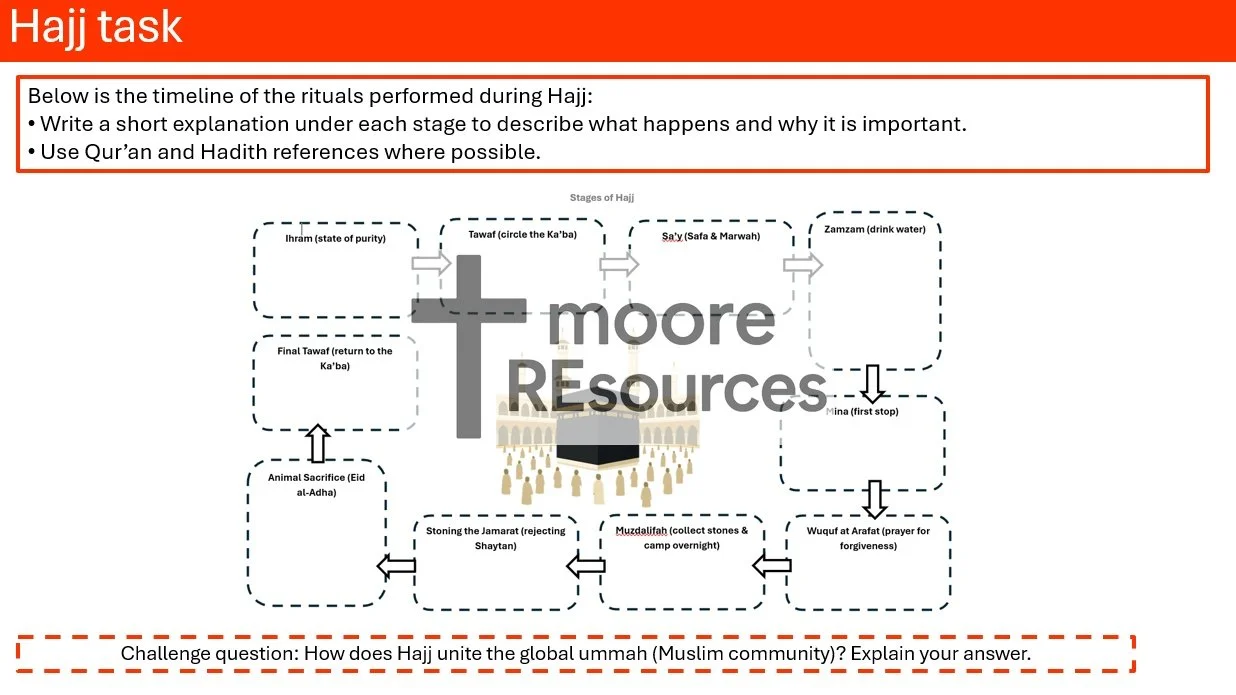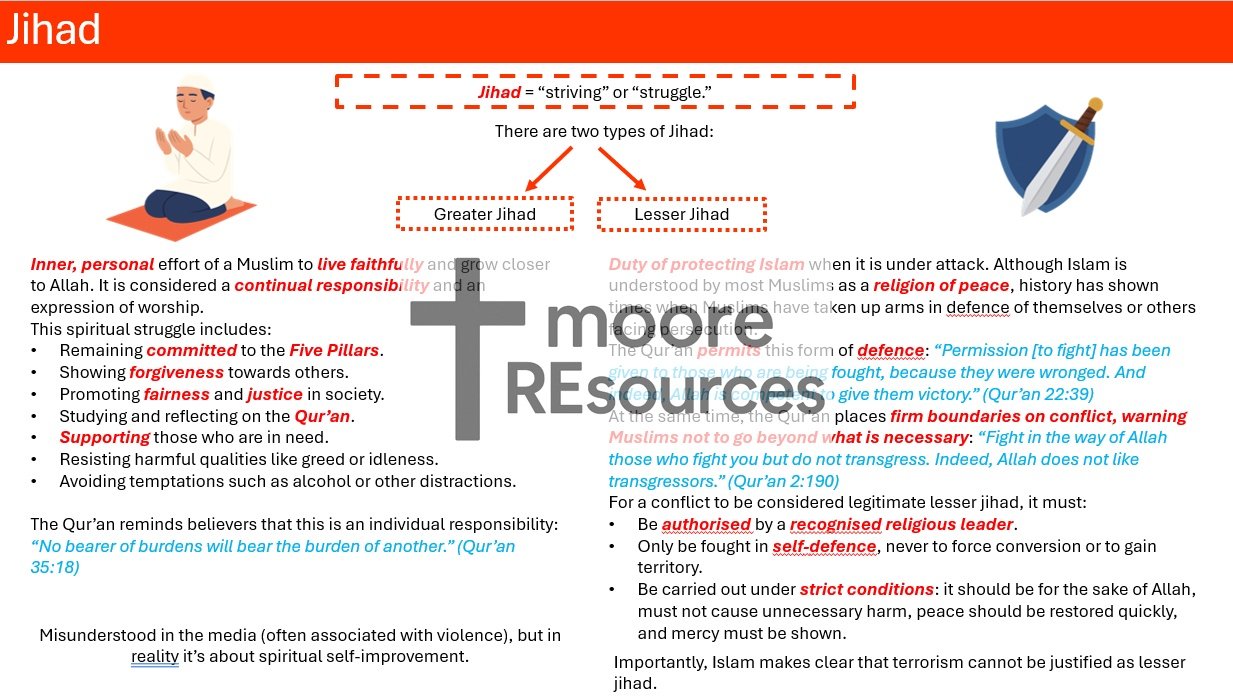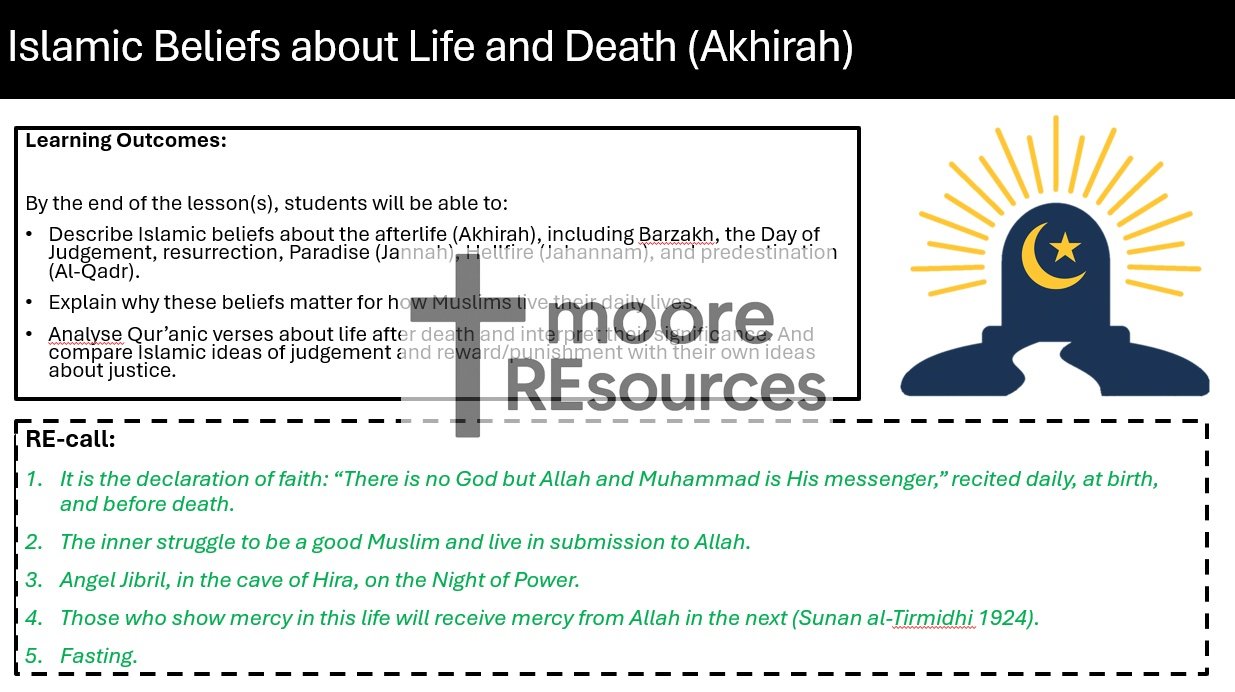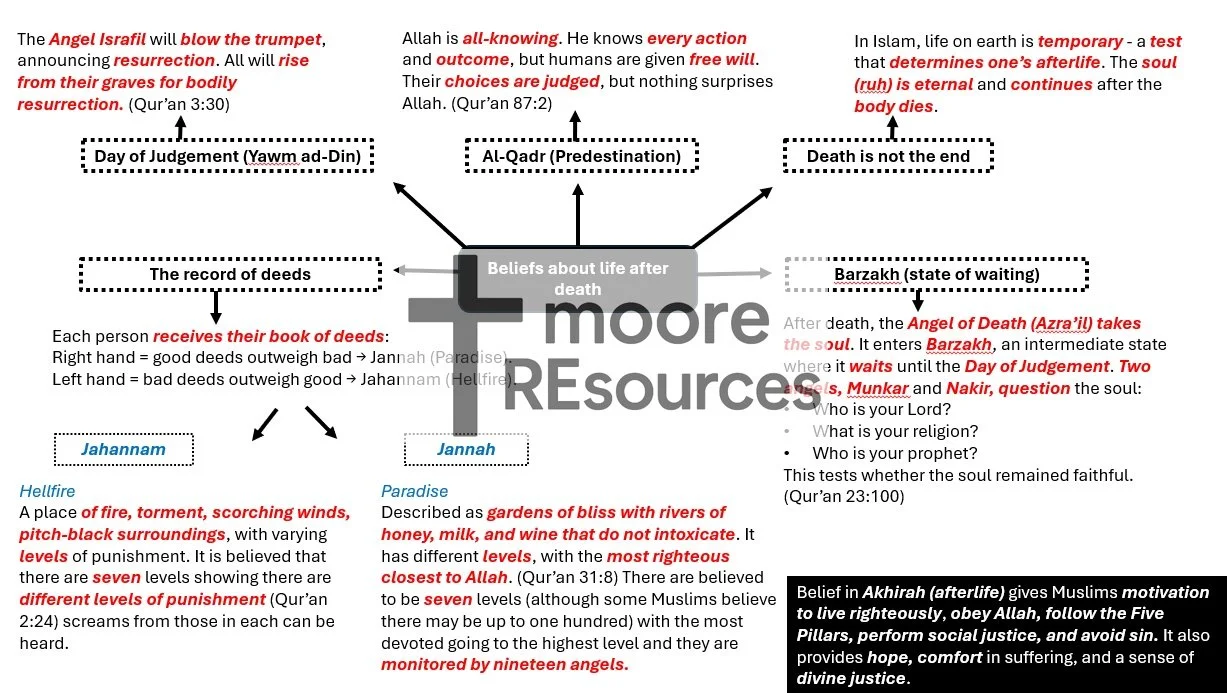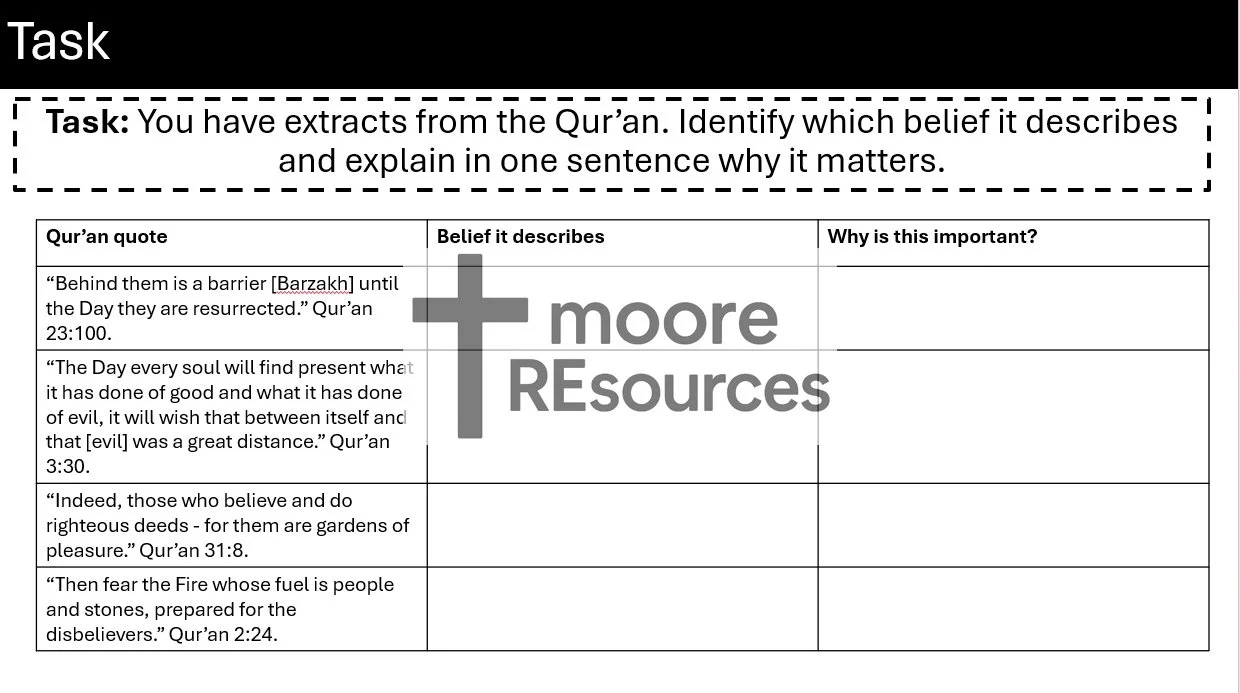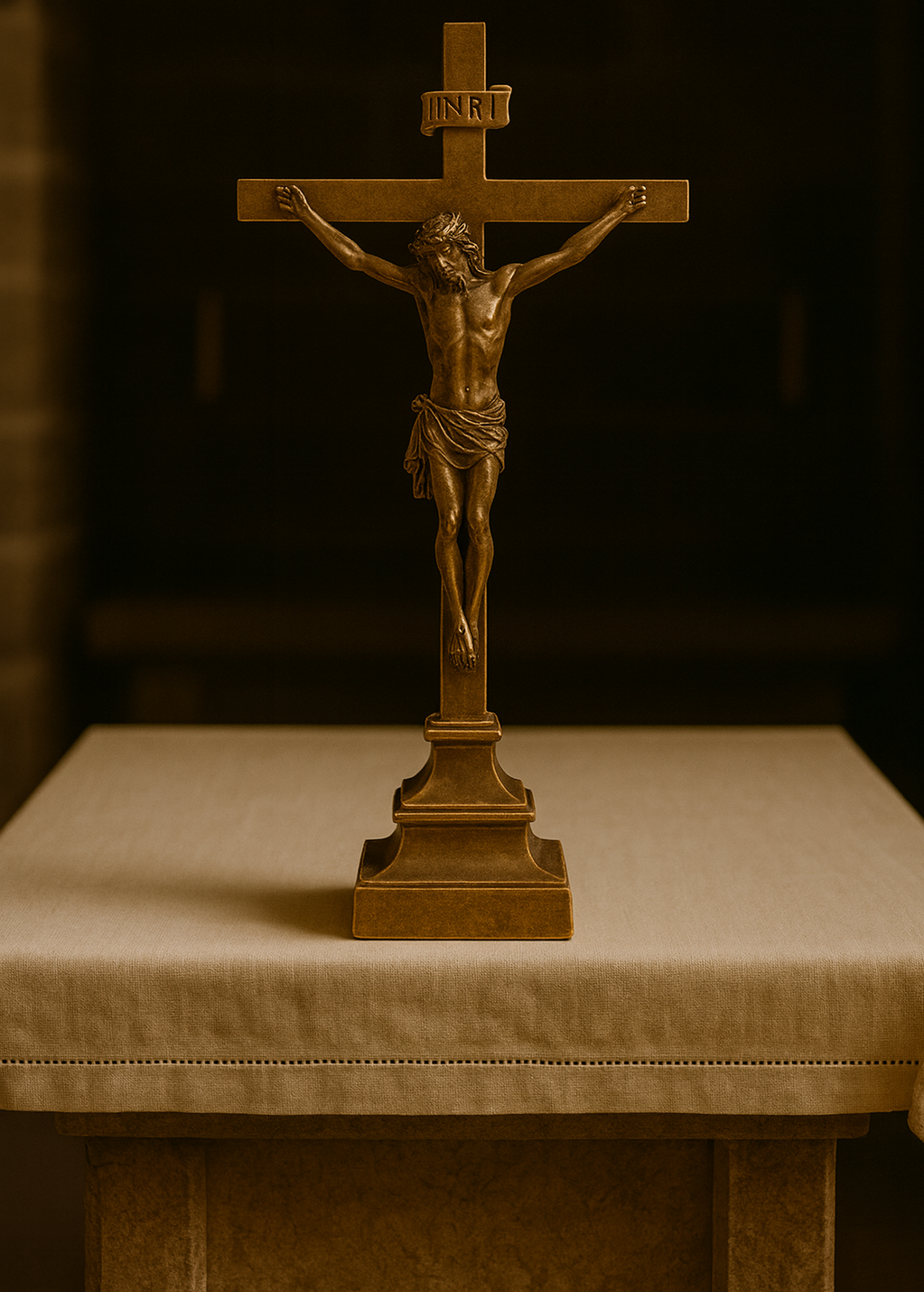 Image 1 of 9
Image 1 of 9

 Image 2 of 9
Image 2 of 9

 Image 3 of 9
Image 3 of 9

 Image 4 of 9
Image 4 of 9

 Image 5 of 9
Image 5 of 9

 Image 6 of 9
Image 6 of 9

 Image 7 of 9
Image 7 of 9

 Image 8 of 9
Image 8 of 9

 Image 9 of 9
Image 9 of 9










Unit 1 - Catholicism Bundle
USE CODE BUNDLE10 FOR £10 OFF WHEN YOU BUY TWO BUNDLES
Bring the richness of Catholic belief, practice, and moral teaching to life with this in-depth and inspiring Bundle Pack for Units 1.2b to 1.4b: Catholic Christianity. Carefully aligned to the WJEC Religious Studies 2025 specification, this comprehensive collection enables learners to explore foundational Catholic doctrines, life and death teachings, moral reasoning, and contemporary expressions of faith. Thoughtfully designed to deepen understanding, encourage critical thinking, and support excellent exam preparation.
Learners Will Understand:
1.2.1b Key Beliefs and Teachings in Catholic Christianity
The nature of God as Creator, omnipotent, omniscient, omnibenevolent, and omnipresent.
The doctrine of the Trinity
Catholic teachings about Jesus: birth, incarnation, ministry, death, resurrection, ascension, and his role as Messiah and Saviour.
Catholic beliefs on the soul: divine spark, free will, rationality, and fallen nature.
Key statements of faith, including the Nicene Creed and the Lord’s Prayer.
The importance of scripture and other sources of authority, including papal encyclicals and the Catechism of the Catholic Church.
1.2.2b Catholic Belief in Action
The importance of putting faith into action through generosity, service to the poor, and community support.
The principle of the Preferential Option for the Poor.
Local and global examples of Catholic activism, with a focus on CAFOD and its mission.
1.3.1b Meaning of Life in Catholic Christianity
Worshipping God as life’s central purpose
The call to love God and neighbour
St Thomas Aquinas’ Natural Law and the Five Primary Precepts.
Spiritual growth and transformation.
1.3.2b Catholic Beliefs About Life After Death
Heaven, hell, purgatory, and resurrection beliefs grounded in scripture and catechism references.
Theological concepts of judgement and salvation.
1.3.3b Catholic Mourning and Funeral Practices
The significance of funerals in committing the soul to God, expressing gratitude, and celebrating life.
Practices including vigil services, requiem mass, rites of committal, and symbolic rituals.
Connection between funeral rites and beliefs about life after death.
1.4.1b Catholic Identity, Belonging and Practices
The importance of worship communities and shared spiritual purpose.
Symbolic actions and rites of passage: baptism, eucharist, first communion, confirmation.
The spiritual and communal significance of pilgrimage, focusing on Lourdes and St Peter’s Basilica.
1.4.2b Catholicism and Morality
Divine command ethics: Ten Commandments and biblical teachings on love and forgiveness.
Natural Law and the role of conscience in moral decision-making.
Judgement and the afterlife: treasures in heaven, final judgement (Matthew 25), and catechism teachings.
Understanding evil and suffering: moral and natural evil, the problem of evil, and theodicies.
Suitable for:
WJEC GCSE Religious Studies (from 2025)
KS4 general RE modules
Ethics, philosophy, and citizenship crossover sessions
Revision, enrichment, or foundation courses
USE CODE BUNDLE10 FOR £10 OFF WHEN YOU BUY TWO BUNDLES
Bring the richness of Catholic belief, practice, and moral teaching to life with this in-depth and inspiring Bundle Pack for Units 1.2b to 1.4b: Catholic Christianity. Carefully aligned to the WJEC Religious Studies 2025 specification, this comprehensive collection enables learners to explore foundational Catholic doctrines, life and death teachings, moral reasoning, and contemporary expressions of faith. Thoughtfully designed to deepen understanding, encourage critical thinking, and support excellent exam preparation.
Learners Will Understand:
1.2.1b Key Beliefs and Teachings in Catholic Christianity
The nature of God as Creator, omnipotent, omniscient, omnibenevolent, and omnipresent.
The doctrine of the Trinity
Catholic teachings about Jesus: birth, incarnation, ministry, death, resurrection, ascension, and his role as Messiah and Saviour.
Catholic beliefs on the soul: divine spark, free will, rationality, and fallen nature.
Key statements of faith, including the Nicene Creed and the Lord’s Prayer.
The importance of scripture and other sources of authority, including papal encyclicals and the Catechism of the Catholic Church.
1.2.2b Catholic Belief in Action
The importance of putting faith into action through generosity, service to the poor, and community support.
The principle of the Preferential Option for the Poor.
Local and global examples of Catholic activism, with a focus on CAFOD and its mission.
1.3.1b Meaning of Life in Catholic Christianity
Worshipping God as life’s central purpose
The call to love God and neighbour
St Thomas Aquinas’ Natural Law and the Five Primary Precepts.
Spiritual growth and transformation.
1.3.2b Catholic Beliefs About Life After Death
Heaven, hell, purgatory, and resurrection beliefs grounded in scripture and catechism references.
Theological concepts of judgement and salvation.
1.3.3b Catholic Mourning and Funeral Practices
The significance of funerals in committing the soul to God, expressing gratitude, and celebrating life.
Practices including vigil services, requiem mass, rites of committal, and symbolic rituals.
Connection between funeral rites and beliefs about life after death.
1.4.1b Catholic Identity, Belonging and Practices
The importance of worship communities and shared spiritual purpose.
Symbolic actions and rites of passage: baptism, eucharist, first communion, confirmation.
The spiritual and communal significance of pilgrimage, focusing on Lourdes and St Peter’s Basilica.
1.4.2b Catholicism and Morality
Divine command ethics: Ten Commandments and biblical teachings on love and forgiveness.
Natural Law and the role of conscience in moral decision-making.
Judgement and the afterlife: treasures in heaven, final judgement (Matthew 25), and catechism teachings.
Understanding evil and suffering: moral and natural evil, the problem of evil, and theodicies.
Suitable for:
WJEC GCSE Religious Studies (from 2025)
KS4 general RE modules
Ethics, philosophy, and citizenship crossover sessions
Revision, enrichment, or foundation courses



